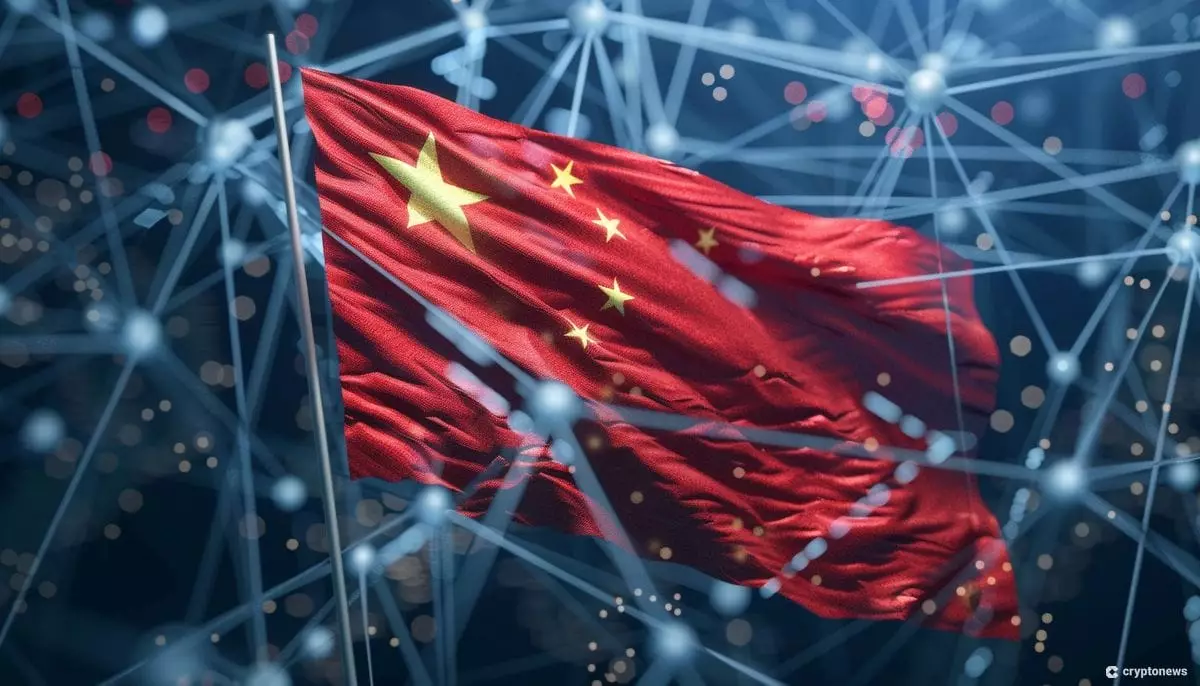China’s government recently made a significant announcement regarding a pioneering initiative spearheaded by Conflux Network. The initiative, known as the “Ultra-Large Scale Blockchain Infrastructure Platform for the Belt and Road Initiative,” marks a pivotal moment in China’s utilization of blockchain technology to facilitate secure cross-border transactions. The main objective of this project is to establish a public blockchain infrastructure platform that can support cross-border cooperation projects along the Belt and Road Initiative. This platform will serve as the foundation for developing various applications aimed at enhancing seamless transactions.
According to reports, the Shanghai Tree Graph Blockchain Research Institute hosted a launch and demonstration meeting for the national critical research and development project titled “Ultra-large-scale Blockchain Basic Platform for the ‘Belt and Road’.” This project, launched on Conflux Network and led by the Shanghai Shutu Blockchain Research Institute, witnessed active participation from esteemed institutions such as the China Academy of Information and Communications Technology, Shanghai Jiao Tong University, Fudan University, Shanghai Maritime University, and other key units. The meeting attracted leaders and experts from prominent entities like the Industrial Development Promotion Center of the Ministry of Industry and Information Technology and the Shanghai Science and Technology Commission. The primary goal of this initiative is to cater to the unique characteristics and requirements of the “Belt and Road” transnational cooperation scenario. The project aims to develop an advanced blockchain primary platform capable of supporting multi-country deployment and enabling collaborative supervision across various entities.
The Role of Conflux Network
Conflux Network, operated by the Conflux Foundation (Shanghai Tree-Graph Blockchain Research Institute), played a crucial role in the successful beta-testing of the Hong Kong Dollar (HKD)-backed stablecoin, AxHKD, in March. This stablecoin, developed by local fintech company AnchorX, is set to be launched initially on Conflux Network before Ethereum. Notably, Conflux Network is recognized as the sole regulatory-compliant public blockchain platform in China. Their involvement in testing the AxHKD stablecoin showcases their commitment to advancing blockchain technology and supporting innovative financial solutions.
Chinese Investors and Crypto Market
Despite China’s strict regulations on cryptocurrencies, including past crackdowns on the industry, the government’s recent blockchain initiative highlights the country’s interest in blockchain technology. However, Chinese investors have increasingly turned to the crypto market as a safer alternative during economic downturns and market uncertainties. This shift has resulted in a thriving underground crypto industry in China, with investors utilizing creative methods to participate in crypto trading. Mainland investors have found ways to access cryptocurrencies like Bitcoin through centralized platforms and engage in over-the-counter transactions. Some investors have even leveraged their forex purchase quotas to move funds into cryptocurrency accounts in Hong Kong, taking advantage of the territory’s favorable stance on digital assets.
Despite the ban on cryptocurrency trading in China, tech giants like Tencent and Huawei are actively involved in the Web3 space. They are leveraging their computing resources to support web3 startups, showcasing their commitment to innovation and technological advancement. Despite regulatory challenges, these companies are making significant strides in the development of blockchain-based technologies and applications.
China’s groundbreaking blockchain initiative signifies a crucial step towards enhancing cross-border transactions and fostering innovation in the realm of blockchain technology. While challenges and regulatory restrictions exist, the country’s interest in blockchain demonstrates a commitment to exploring the potential of digital assets and decentralized systems. As the global landscape of finance and technology continues to evolve, initiatives like the one led by Conflux Network pave the way for future advancements in blockchain infrastructure and cross-border cooperation.

